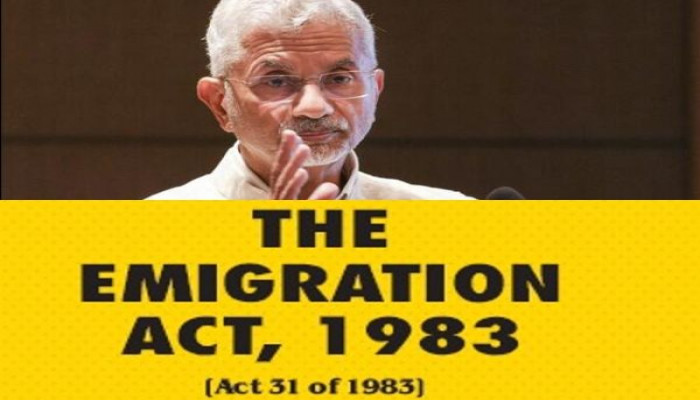India to amend 1983 Emigration Act to cater to modern workforce demands: EAM Jaishankar
- In Reports
- 04:46 PM, May 06, 2025
- Myind Staff
S Jaishankar said the Emigration Act was “designed to address the demands of a particular geography in a certain era.” He stated that times have changed, and India’s vistas have expanded.
India plans to amend the Emigration Act of 1983 as it aims to meet the demands of the global workplace and promote legal mobility. At the same time, it seeks to discourage, and as Jaishankar said, “I would argue even prohibit,” non-legal migration.
S. Jaishankar addressed the launch of the Global Access to Talent from India (GATI) Foundation in New Delhi. He said the Government has launched a range of initiatives for Indian workers. These include skill training, vocational education, and professional preparation. Jaishankar said these initiatives aim to make Indian workers more productive in the contemporary era.
Noting that India has not developed or leveraged its human resources as much as it could have in the past, Jaishankar stated, “Conceptually, it is vital that we promote legal mobility and strongly discourage, I would argue even prohibit, non-legal ones.”
He said India must address the challenge of the black economy in the context of talent flow, societal good, and national security. He reiterated that the 1983 Act was designed for a different time and geography. He emphasised that the world has changed and India must now respond to broader global opportunities. Jaishankar said, “We need to be more promotional and aware of new possibilities, even while taking care of the vulnerable. This issue is currently being examined by the government.”
The minister said the Government has taken several steps to give Indian citizens the confidence to explore the global workplace. These include conducting evacuation operations in emergencies and assisting with replacement passports. It also ensures wage payment, protects workers from mistreatment by foreign employers, and upholds the rights of Indians abroad.
“We have sought to institutionalise...taking care of Indians abroad,” Jaishankar said. “From establishing an effective grievance portal to creating a responsive fund for the needs of the vulnerable.”
In recent years, India has signed migration and mobility agreements with 22 countries, ranging from Germany to Malaysia. These agreements open up avenues for both professionals and blue-collar workers. They also address the issue of illegal migration.
Meanwhile, Jaishankar said around 34 million Indians and people of Indian origin currently live and work abroad. About half of them are Indian citizens. Roughly one-third are located in West Asia, while the rest are mainly in developed economies.
These workers belong to a wide range of sectors. They include tech professionals, entrepreneurs, blue-collar workers, and service providers. Sectors like seafaring, airlines, and hospitality have already tapped into India’s human resource pool significantly. Countries like Australia and Germany have seen a marked increase in Indian workers in recent years.
Japan has advocated an action plan to move forward with the Specialised Skill Workers Agreement signed with India. Malaysia has opened more sectors to Indian workers, especially in construction.
Jaishankar asserted that India’s talents and skills will be “very much part of our branding.” He said an interdependent and technology-driven world will place higher value on these attributes. He mentioned that foreign investment, global collaboration, and trade will play a key role in boosting manufacturing. They will also contribute to the development of technology, agriculture, food processing, and progress in digital and AI fields.
He stated that India must give serious attention to global job opportunities. He attributed this to sharp demographic changes, a rise in new technologies, cultural and work compatibility, and the growing importance of trust and resilience in many areas.







Comments